From Heat to The Godfather Part II, here’s ranking the best Al Pacino movies and performances of all time.
Alfredo James Pacino, like every other legendary actor in cinema, makes us go fishing for the perfect words to describe his greatness. With an indisputable catalog of iconic performances to his name, it’d be hard to argue against the fact that Al Pacino is one of the greatest actors and movie stars of all time.
Al Pacino was born in New York City in 1940. He had a troubled childhood and adolescence, his parents separated when he was just 2. His mother had him very young, and Pacino grew up with his grandparents. Pacino dropped out of school though he got a chance to enroll in High School of Performing Arts in Manhattan. His resilience and love for acting got him through those tough times of poverty. By 21, Pacino lost his mother. His caring maternal grandmother passed away a year later. At the age of 23, he joined Actors Studio and learned acting under the guidance of Lee Strasberg. Still, it was only after a lot of struggle, he found work and got into the movies and Broadway. During this time, Al Pacino was encouraged and supported by his mentor and best friend, Charlie Laughton.
Eventually, Al Pacino got his first big role in The Panic in Needle Park at the age of 31, where he plays a New York City junkie who takes to a life of crime in order to sustain his addiction. A year later he was nominated for an Oscar for his iconic role in Coppola’s masterpiece The Godfather. Nevertheless, Pacino struggled to cope with fame and was also emotionally overwhelmed after each great performance in the 1970s. Unfortunately, he became alcoholic and at one point, it threatened his career. Years of therapy sessions and his passion for acting eventually lifted him from the lows. He has been sober since 1977. Pacino’s life and acting career is full of such unbelievable ups and downs.
Quickly then, here’s our ranking of the best Al Pacino movies:
The Best Al Pacino Movies
15 …And Justice For All (1979)
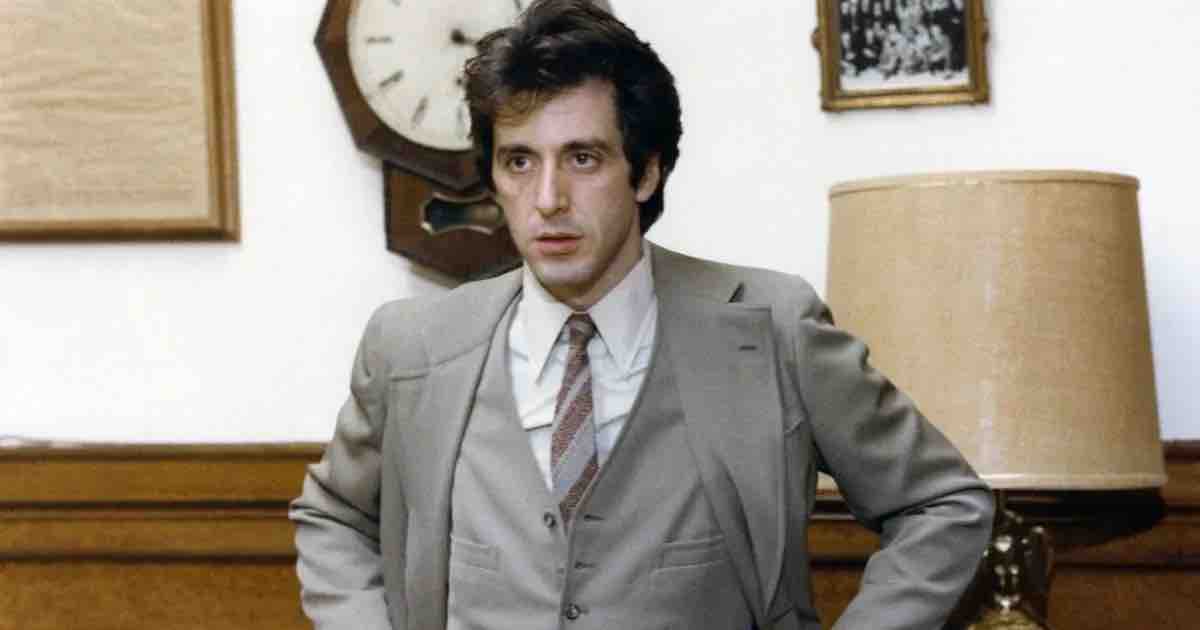
Norman Jewison’s social drama sees Al Pacino offering one of his earlier flamboyant performances as opposed to his brilliantly restrained turns in The Godfather Part I & II and Serpico. Yet Pacino is convincing here as the enraged defense lawyer on the verge of nervous breakdown. In the later part of his career, such loud performances only came across as a self-parody. The actor even earned the name ‘Screamin’ Al’.
In …And Justice for All, Pacino plays Arthur Kirkland who is asked to defend a judge accused of rape. Kirkland is known for his exceptional litigation skills. However, his moral and ethical compass brings him trouble and he even loses cases because of that. Kirkland strives to find true justice in a judiciary system that’s apathetic at best and notoriously corrupted at worst. Pacino’s courtroom squabbles and his snappy rejoinder make the drama more compelling.
14. Angels In America (2003)
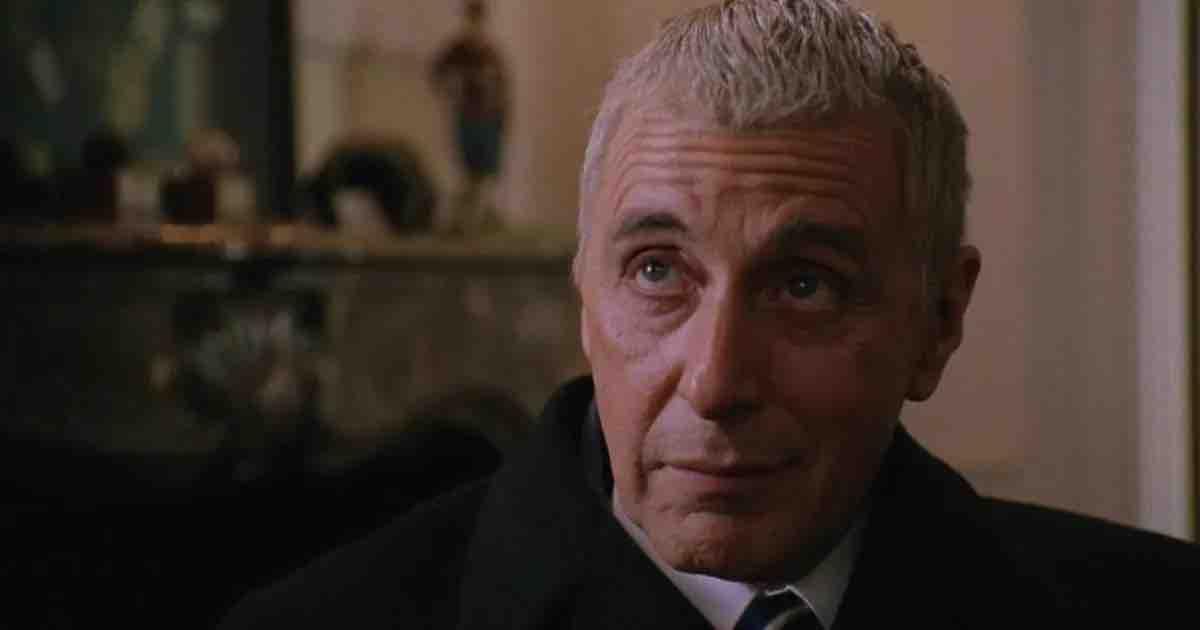
HBO’s mini TV-series Angels In America offers one of the rare post-millennial Al Pacino performances, where he avoids playing yet another parody of himself.
Veteran filmmaker Mike Nichols’ two part mini-series is based on Tony Kushner’s extraordinary, Pulitzer-Prize winning two-part play. It explores sexuality and American politics during the AIDS-era. Apart from Al Pacino, the stellar cast includes Emma Thompson, Meryl Streep, Jeffrey Wright, etc.
Attorney Ray Cohn (Pacino) is a power-hungry man afflicted with AIDS. He makes Mr. Cohn at once heinous as well as touching. Pacino’s Cohn is a deeply closeted homosexual who is part of the McCarthy era. The character is based on a real-life political figure. The monologue on law and ethics, plus the powerful scene at the doctor’s office serve as testament to his legendary acting style. Angels in America also marks Pacino’s first role in a TV movie.
13. The Panic in Needle Park (1971)
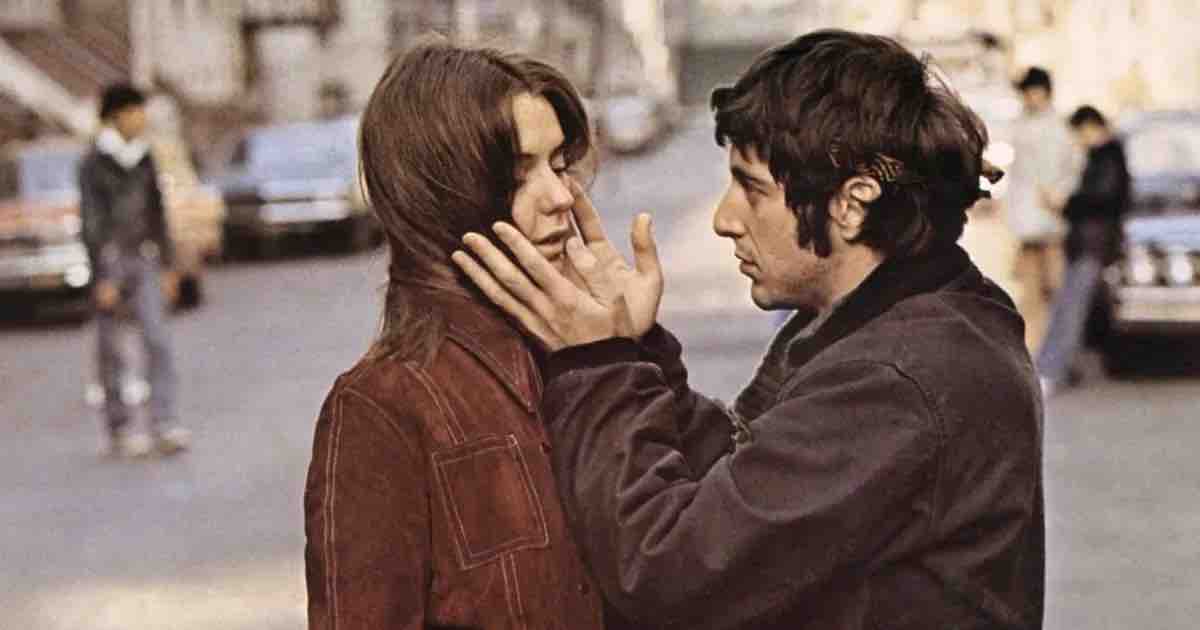
Jerry Schatzberg’s drama is set in New York City and confronts the issue of heroin abuse. Al Pacino plays a petty criminal and a drug addict named Bobby. It was the legendary actor’s breakthrough role which influenced his casting in Coppola’s The Godfather. The Panic in Needle Park offers one of the most hard-hitting takes on the subject. Schatzberg closely scrutinizes the downward spiral and the gradual self-destructive effects of heroin addiction. The unflinching portrayal precedes movies like Sid and Nancy, Trainspotting, and Requiem for Dream.
Pacino offers a sensitive and mesmerizing performance as Bobby. His slow disintegration from a charming street-wise youngster to a dangerous drug addict remains a testament to his earlier acting capabilities. Pacino was also finely supported by Kitty Winn, who plays Bobby’s vulnerable and doomed girlfriend. In fact, director Schatzberg largely avoids melodrama and rather focuses on the characters’ interiority.
12. Heat (1995)
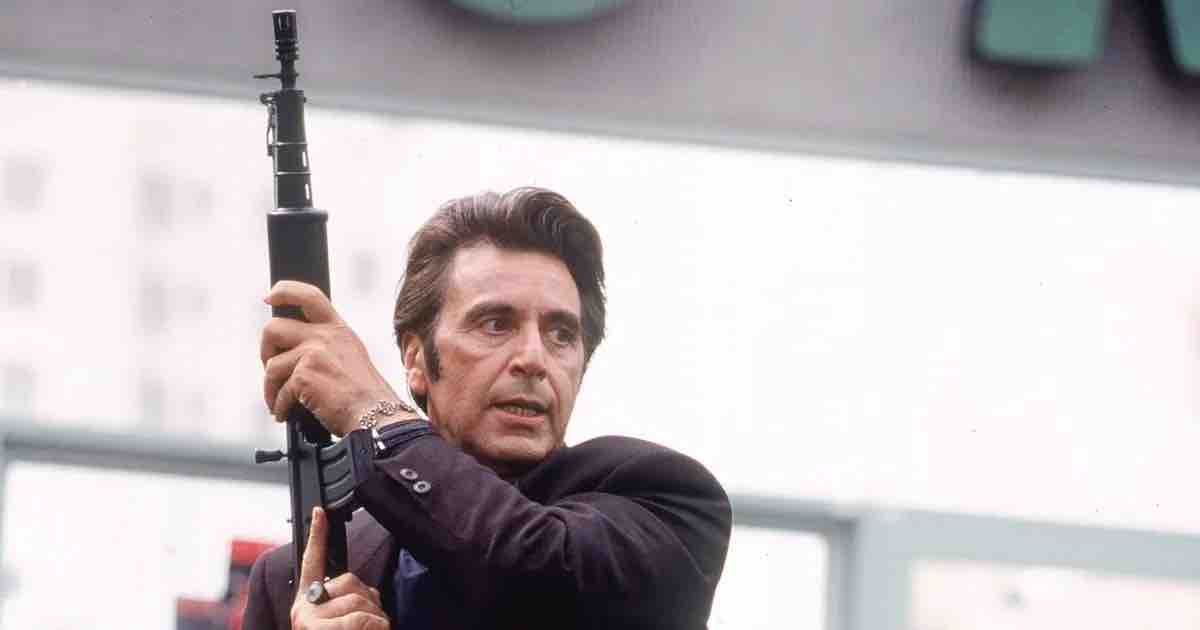
Michael Mann’s intense cat-and-mouse thriller saw the two great actors Robert De Niro and Al Pacino sharing screen space for the first time. Pacino plays Lt. Vincent Hanna who is in pursuit of De Niro’s master criminal character Neil McCauley. Obviously, Pacino’s character is the most eccentric and boisterous one among the star-studded cast. He did offer understated performances in the 1990s, particularly in Glengarry Glen Ross and The Insider. But in Heat, Pacino’s Hanna is exuberant and loud. Part of this can be attributed to the character Pacino is playing.
Hanna faces a lot of troubles in personal life and is deeply obsessed with his detective duties. At one point Hanna says, “My life’s a disaster zone….” Therefore, Pacino’s enjoyable yet over-the-top moments in Heat seem integral to the character’s behavior. Moreover, Mann’s writing gracefully explores all the aspects of Hanna’s psyche.
11. Donnie Brasco (1997)
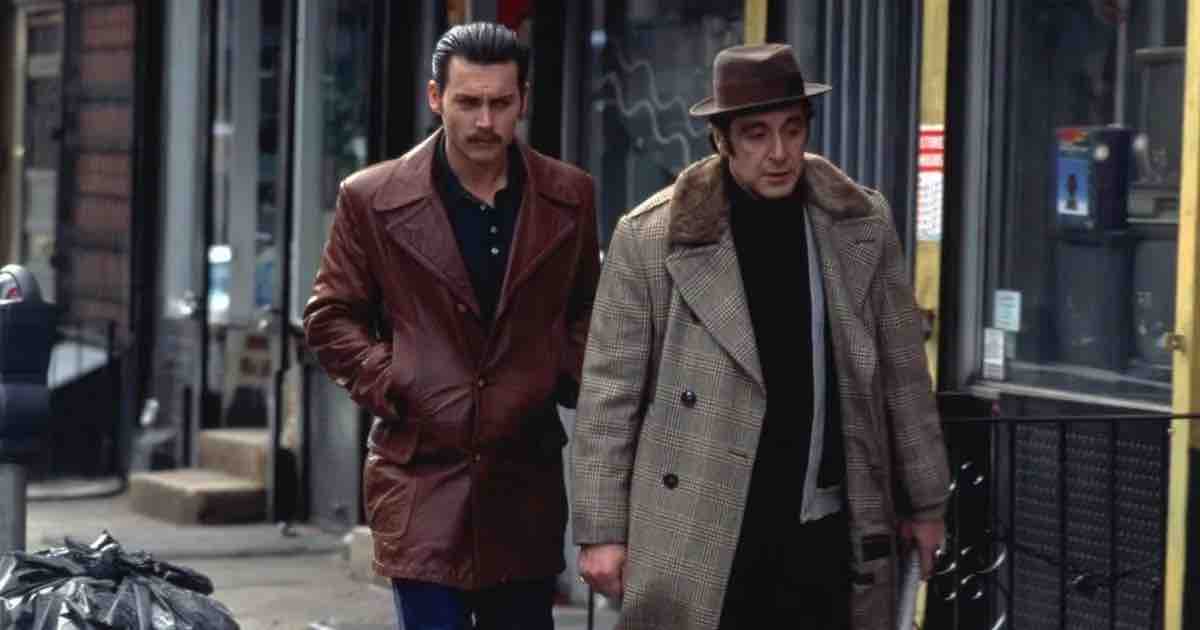
Al Pacino once again plays a criminal and gangster in Mike Newell’s Donnie Brasco. But the big change here is that his character Lefty is a small-timer or a footsoldier. He is constantly disrespected and has no hopes to rise in the mob-hierarchy. The character is based on real-life mob figure Benjamin ‘Lefty’ Ruggiero.
Johnny Depp plays the protagonist, an undercover cop with existential dilemmas. Donnie Brasco is a wonderful, unsentimental study of organized crime. The gangster world in the film is devoid of glamor and excitement.
In fact, Al Pacino’s performance remains the face of a low-level guy’s sorrowful existence. Moreover, his performance has great range which has him yelling, cracking jokes, and at the same time he subtly expresses his woes and disappointment. One could say that Lefty Ruggiero is the perfect antidote for Scarface’s Tony Montana. It’s very affecting and honest.
10. The Insider (1999)
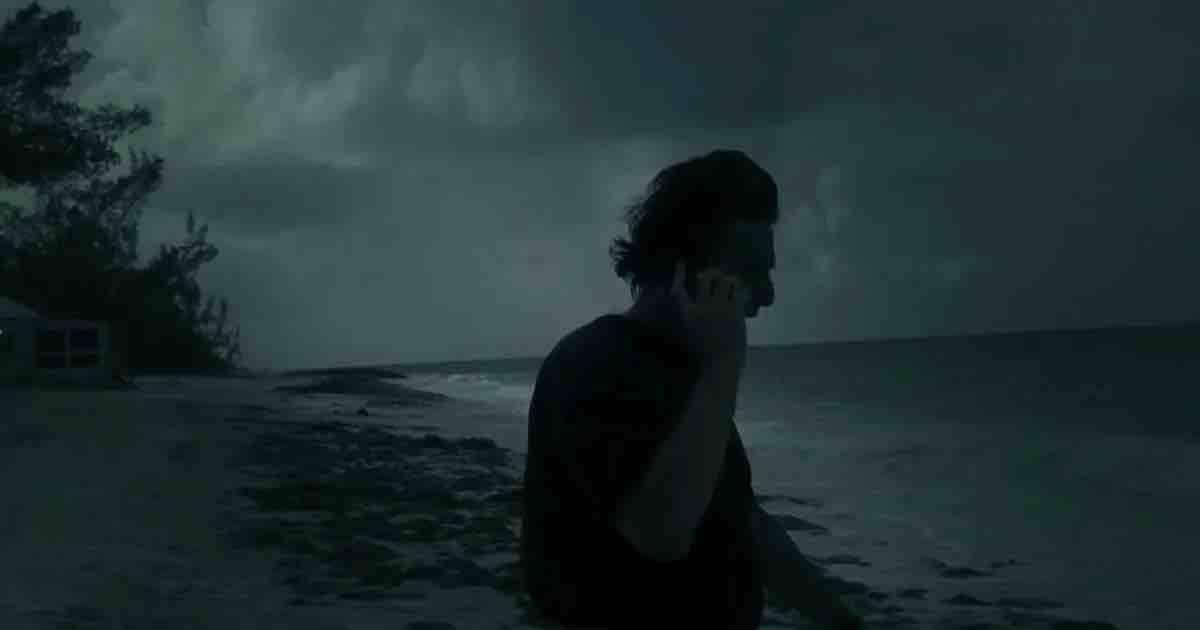
Michael Mann’s The Insider tells the true story of corporate whistleblower Jeffrey Wigand (Russell Crowe). He exposed the nature of Big Tobacco with the help of CBS’ 60 Minutes producer Lowell Bergman. Mann’s narrative takes us through this process of truth-telling in a meticulous manner. Pacino plays Bergman with astounding subtlety, which often went missing in the later part of his career. In fact, he strikes the perfect balance between an investigative reporter’s righteous fury and world-weariness.
The greatness of the actor could be judged in one particular scene where he talks on the portable phone on the beach, restlessly pacing around, to get to the truth. Al’s detective role in Mann’s previous masterpiece Heat is more famous than this journalist role. But, I feel Pacino has a far more reigning presence in The Insider. It’s bliss to see the actor chew over Mann’s pure existentialist theme.
9. Scent of a Woman (1992)
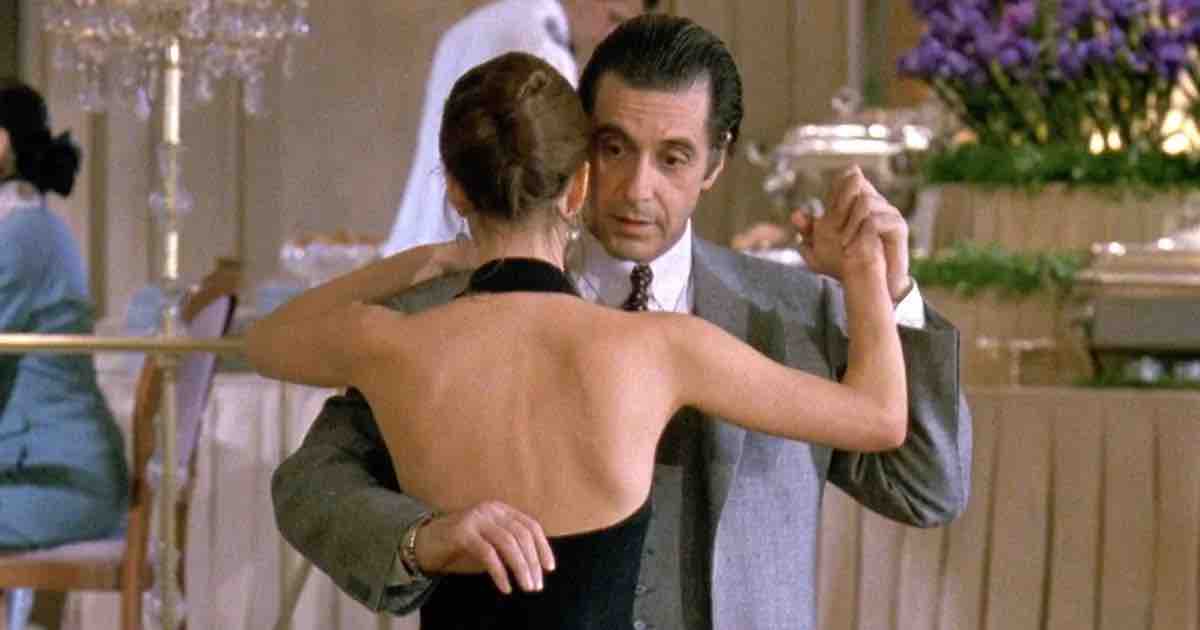
Martin Brest’s memorable drama features one of the most enjoyable Al Pacino performances, similar to his thoroughly entertaining portrayal of a comic villain in Dick Tracy (1990). But I’d say it’s definitely not one of his best. Interestingly, Scent of a Woman led the Academy to finally give the actor his first Oscar. Pacino was nominated for six acting Oscars before that, and four times for leading roles.
Scent of a Woman is a remake of the 1974 Italian classic of the same title. It revolves around the friendship that develops between a cantankerous retired army colonel named Frank Slade, who has lost his sight in an accident and a young man studying in a posh prep school. The college-going kid, Charlie Simms takes up the job to aid and care for Frank. The short-tempered Frank gradually warms up to Charlie, and facilitates the young man’s initiation into adulthood. Pacino spectacularly gets the mannerisms of a visually impaired man right. At the same time, he perfectly conveys the character’s emotions despite those limitations.
8. Carlito’s Way (1993)
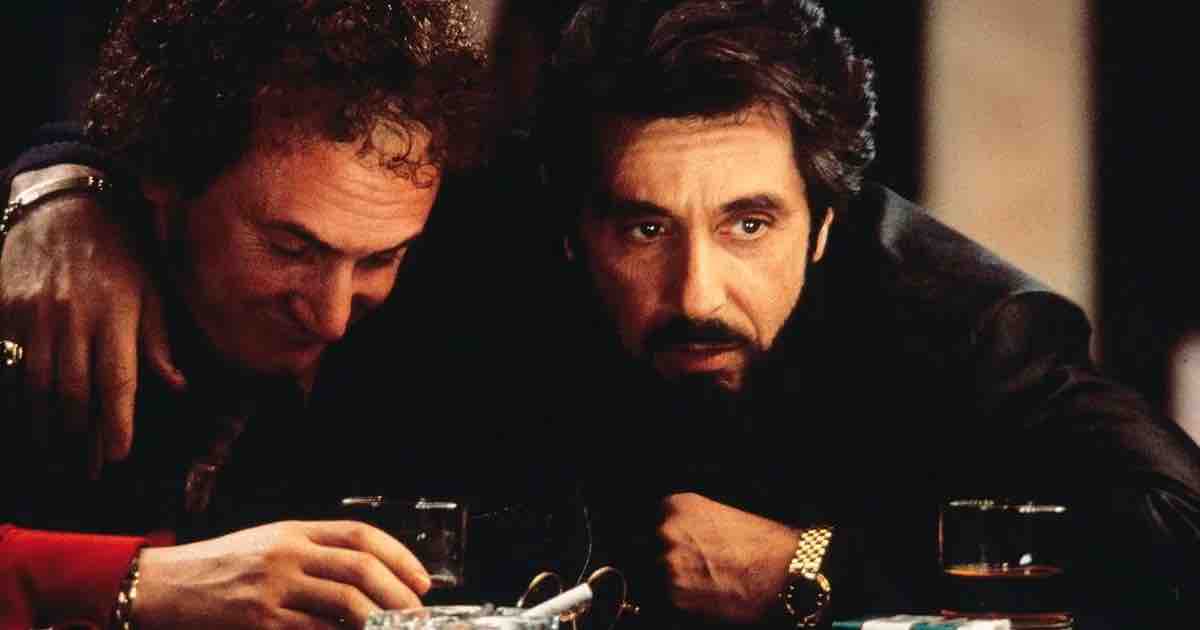
In director Brian De Palma ’s Carlito’s Way, Al Pacino plays the notorious Puerto Rican former drug kingpin. Recently released from prison, Carlito hopes to escape his former life. But fate has other plans. Like Scarface, it’s also about human frailties and excessive greed. But, it approaches these themes in a more tragic manner.
Carlito’s Way is a return to the tough guy role for Al Pacino. After Scarface, the actor stayed away from the limelight for a while, and did relatively smaller projects. Pacino even played a short-order cook in the beautiful rom-com Frankie and Johnny (1991). Carlito’s Way carries the usual Al Pacino intensity which starts to burn its way into our psyche, right from the opening morbid scene. Al’s impassioned, color-drained face in the first sequence is spectacular to watch. Besides providing intense emotional thrills, Pacino is great in showcasing his deep-rooted sense of romance.
7. Scarecrow (1973)
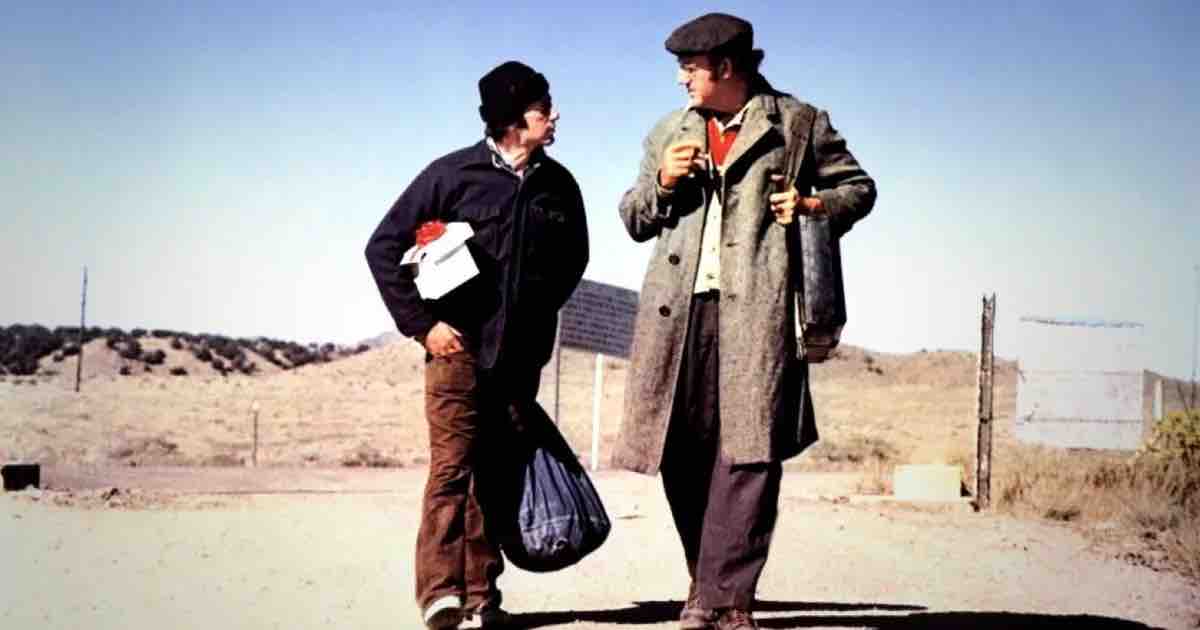
In this Palme d’Or winning, low-key character study, Pacino plays the role of Francis, a downtrodden drifter. Pacino once again collaborated with director Schatzberg after The Panic in Needle Park. Pacino’s Francis engages in clownish acts to mask the misery buried deep inside. He is back from the Navy and on his way to Detroit to meet the pregnant girlfriend he abandoned five years before. Accompanying Francis in the long journey is Max (brilliantly played by Gene Hackman), a short-tempered guy fresh out of prison.
Both the great actors were said to have journeyed across California as drifters to prepare for the role. That’s pretty evident in their strong screen dynamics. The film was also shot in sequence which gives a sense of realism to the budding friendship between Francis and Max.
Al Pacino adds small, natural details to depict Francis’ societal alienation. His breakdown in the ‘fountain’ scene is an unforgettable moment.
6. Scarface (1983)

Al Pacino’s career slumped in the eighties. The only exception in this decade was his role of the iconic, crazy gangster Tony Montana. After Michael Corleone, it’s his second most influential role that every aspiring actor in the world has tried to imitate.
Scarface, directed by Brian De Palma, is the story of a man who wants to live large, desire large and fight till the end. Al Pacino definitely offers an over-the-top performance. Yet, the energy behind the hammy performance was so captivating.
Palma’s direction and Al Pacino’s screen presence were a precursor to our current senseless consumerist culture and ego-centric pop culture. It may not be good acting, but was massively entertaining. Pacino followed-up Scarface with a wonderfully restrained performance in Hugh Hudson’s Revolution (1985). But the film was panned by critics and was a box-office failure. Therefore, he returned to the stage and didn’t do any films for four years.
5. The Irishman (2019)
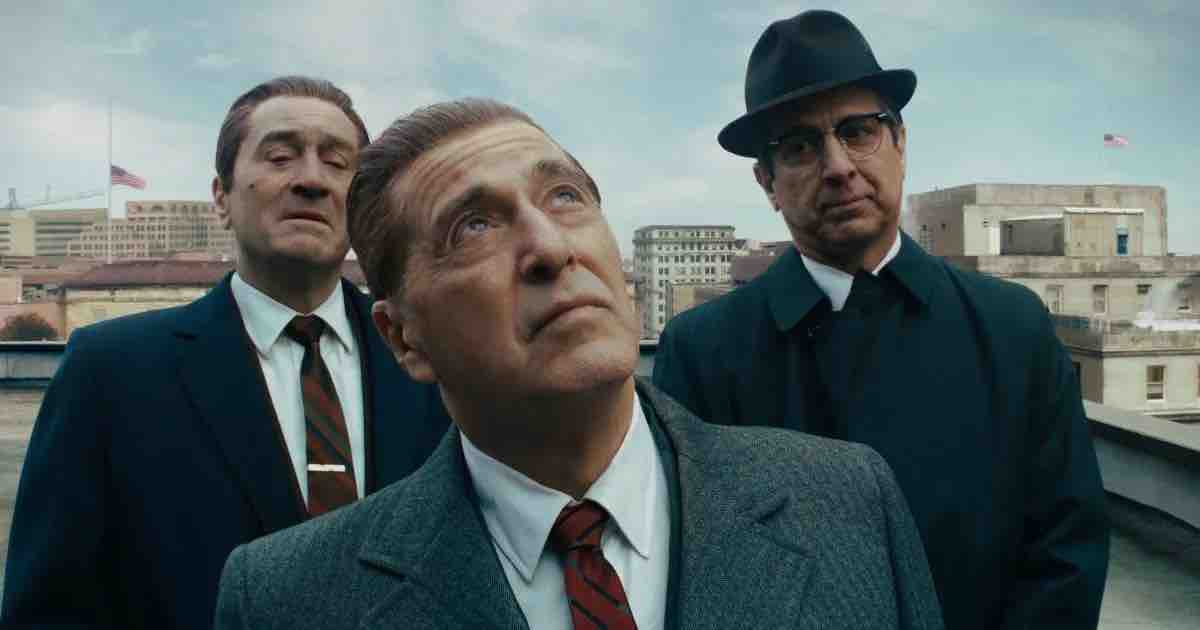
Martin Scorsese’s highly anticipated Netflix original gangster epic thankfully lived up to its hype. This sweeping tale of infamous criminal figures hits on themes not usually encountered in the gangster genre. Scorsese and Zaillian’s contemplative tone showcases the inviolable connection between crime and politics. They also subtly explore the burden of taking a darker path in life. Robert De Niro, Al Pacino, and Joe Pesci’s fantastic performances definitely make this an unforgettable work in Scorsese’s oeuvre.
Al Pacino’s Jimmy Hoffa has earlier been portrayed by Jack Nicholson in the 1992 biopic of Hoffa. Nevertheless, in The Irishman, we see the vulnerability and very human tendencies of this otherwise ruthless Union President. While his over-the-top mannerisms in Heat are attributed to his world-weariness as a cop, here his loud exclamations are part of Hoffa’s extreme confidence.
Pacino’s onscreen sense of humor is underrated. In The Irishman, he absolutely commands the screen during Hoffa’s hilarious showdown with Tony Pro. After nearly three decades, Pacino received an Academy Award nomination for his sublime performance.
4. Serpico (1973)
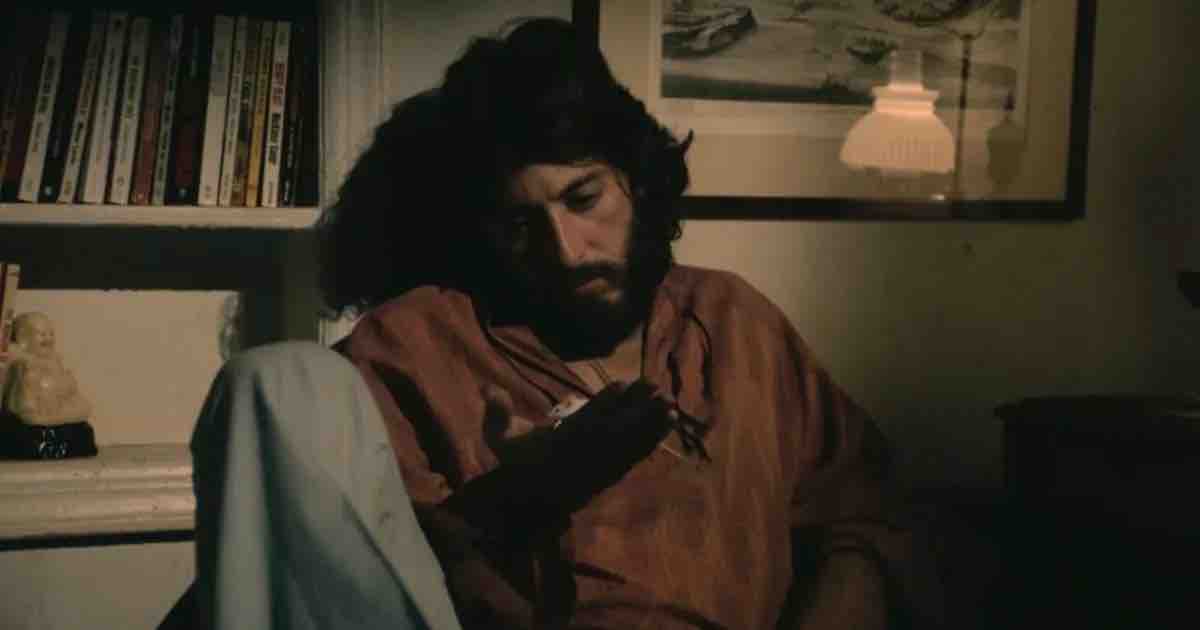
“If you prayed to inhabit a character, Sidney was the priest who listened to your prayers, helped them come true,” said Al Pacino while presenting director Sidney Lumet his honorary Oscar. The truthful nature of those words could be witnessed in Al’s spectacular performance as the tormented whistleblower in Serpico. Serpico was a New York City cop, menaced by his corrupted police department for being honest. When the story about Frank Serpico was first published in 1971, Sam Peckinpah wanted to do a film with Robert Redford in the titular role. But after The Godfather’s success, the project went to Al Pacino.
Al Pacino scaled wide-range of emotional frontiers to showcase the cop’s vulnerability, formidable inner strength and also the sense of isolation. Al’s trademark rage could be witnessed in the scene when he locks up the loan shark. But my favorite is the final moment when he expresses inner pain in the most nuanced manner.
3. Dog Day Afternoon (1975)
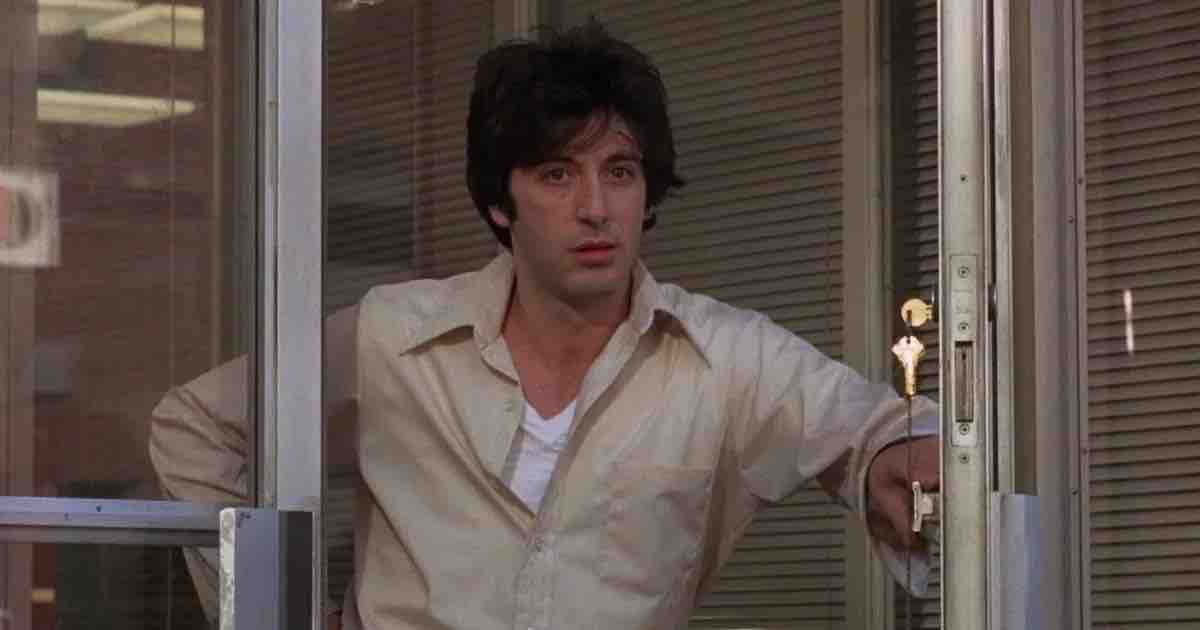
Watching Al Pacino as Sonny Wortzik in Lumet’s Dog Day Afternoon, you can piercingly feel his physical exhaustion and emotional distress. The actor once again collaborated with the Serpico director Sidney Lumet. The movie was based on a 1972 true story of two New York men who set out to rob a bank on a sweltering afternoon. It was mostly shot in sequence to capture the nervous energy of the grim situation.
Pacino made a daring decision to play a homosexual character in a mainstream film. And, he doesn’t assume any presumed ‘traits’ to play the gay role. He just splendidly portrays a nervous man, driven by passion and love. The fairly long sequence when Sonny speaks to his lover Leon is one of the film’s most captivating moments. And who can forget the great improvised scene of Al yelling, ‘Attica! Attica! Attica!.’
2. The Godfather (1972)

When director Francis Ford Coppola wanted Al Pacino to play the role of Michael Corleone in the seminal gangster epic The Godfather, the studio executives were appalled. They wanted a young star like Robert Redford or Jack Nicholson or Warren Beatty. Film historians have often pointed to studio executives’ opinion of Coppola being a little ‘mad,’ for casting a ‘kid’ aka ‘that midget’ to do a fiery role. But the actor who had only two movie acting credits to his list undertook the role with formidable strength. Initially, Al too thought he wasn’t right for the role and Coppola has said that the initial screen test wasn’t promising.
The Godfather is largely about Michael’s journey though Marlon Brandon’s performance as Vito Corleone became the talking point. Pacino’s Michael is a well-mannered young man in the opening scenes. But in the next three hours we see him taking up the leadership of Corleone family, and the immense power he holds lends a different meaning to his controlled and composed manner.
In 1973, Pacino was nominated for Best Supporting Actor for his work in The Godfather. The following year, in 1975, he was nominated for Best Actor. That bring us to the #1 spot on the list! The Godfather Part II.
1. The Godfather Part II (1974)
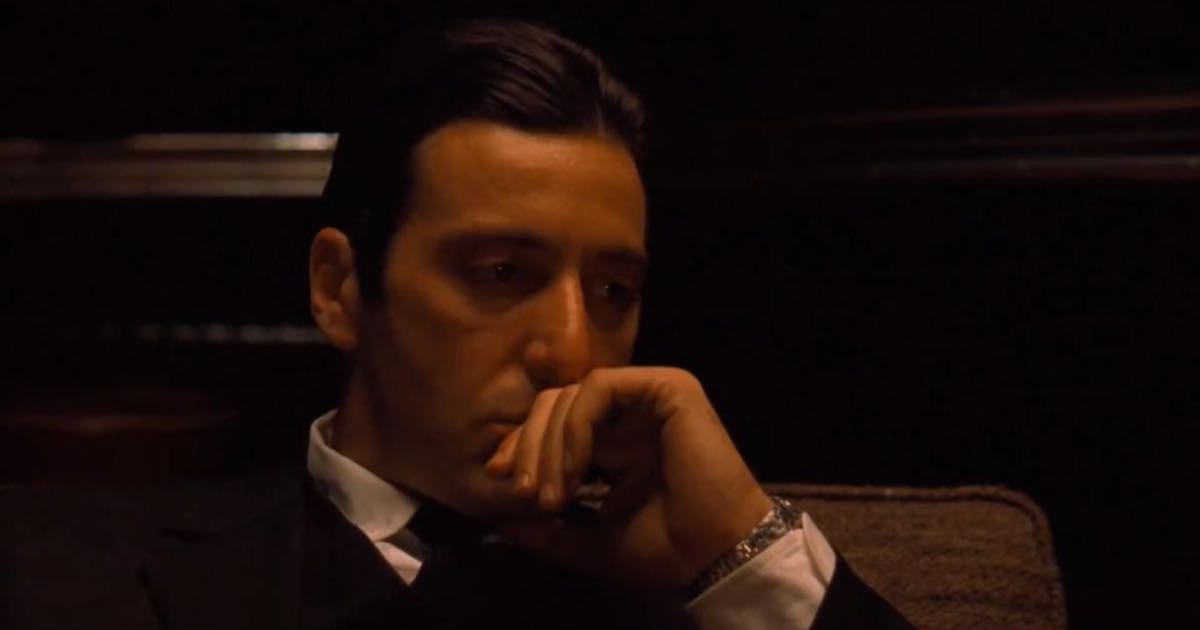
The Godfather Part II follows the powerful rise of Michael Corleone. And at the same time, it depicts his corrupted nature since by the final moments despite great power and wealth, Michael is all alone in the world. The heartbreaking betrayals and menace corresponds to Michael’s embrace of the dark side.
The film has the earlier instance of the famous Al Pacino ‘explosion’ – when Michael kisses Fredo and later when he shouts at Kay. But the true greatness of the performance lies in the quiet, subtle moments, as the unexpressed fury depraves his moral balance. He is at once restrained and also subtly suggesting the rage and unbridled passion lying deep within.
Al Pacino had a very hard time connecting with the character and portraying him. In fact, it’s recently revealed that the actor was close to breaking down while filming. It continued to have an impact on his mental health throughout the 1970s. Nevertheless, the producers and executives who initially wanted to fire him from The Godfather, had immense confidence in Pacino playing Michael Corleone.
Conclusion
There have been a lot of questions raised over Al Pacino’s waning acting skills after the 1990s. But despite being part of few utterly bad films, Pacino has continued to offer strong performances. His acting in You Don’t Know Jack (2011), The Irishman (2019), and TV series The Hunters (2020) shows us that Pacino has still got it in him. He was also excellent as Aldo Gucci in Ridley Scott’s crime drama House of Gucci. With the news that Al Pacino is playing King Lear in an adaptation by Merchant of Venice filmmaker Michael Radford, it’s obvious that the actor doesn’t believe in stopping or quitting. He will continue to inspire generations of actors.
What are your favorite Al Pacino movies? Let’s talk in the comments below.

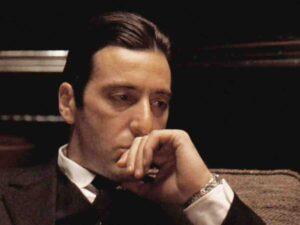
Amazing list!
The performances he has done in each & every movie mentioned above is beyond amazing. Specially ‘The Godfather Part 2’ and the determination with which he performs is unmatchable.
PS: Please watch Pacino’s ‘…And Justice For All,’ if you haven’t. This will be one more addition to your list of Pacino’s best performances. 😊😃
Where is Scent of a woman
Imagine not having Scent of a Woman on a top-10 list for Al Pacino’s greatest performances. That’s embarrassing & basically invalidates you as a relevant opinion on the subject. #1 on my list.